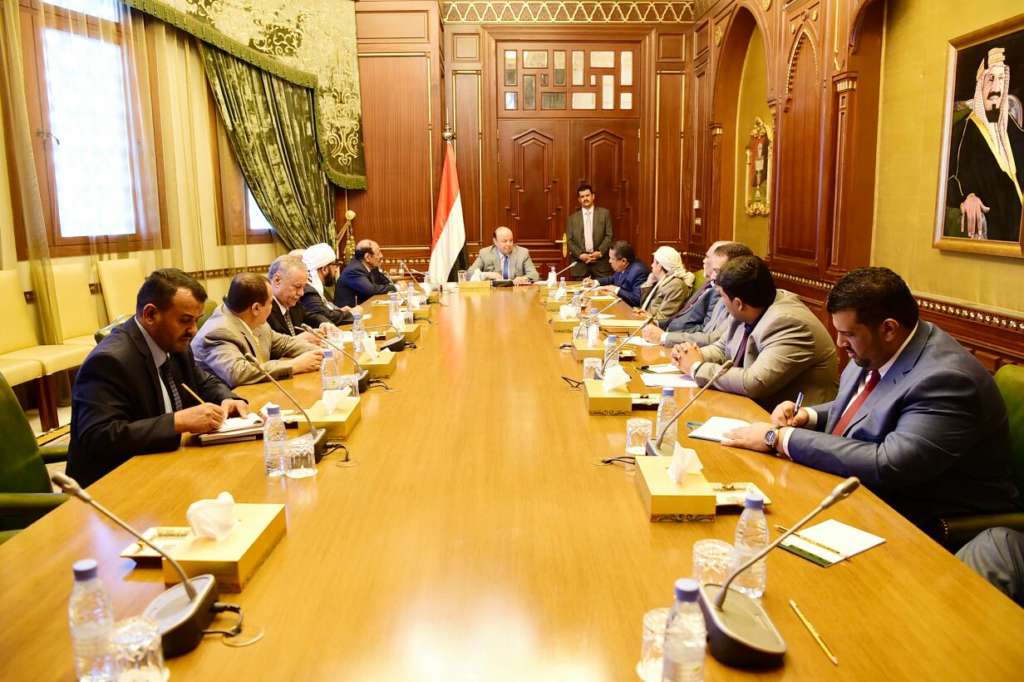London – Yemeni leadership had rejected any suggestions or discussions that disagree with the peace references represented by the Gulf initiative and its execution mechanism, as well as the results of the national dialogue and U.N. resolutions including Resolution 2216.
Yemen’s President Abd-Rabbu Mansour Hadi presided a meeting with the advisers committee. The meeting was attended by vice president Army general Ali Mohsen Saleh and Prime Minister Ahmed Obeid bin Daghr to discuss current events and latest developments in Yemen.
The president stressed during the meeting that peace should prevail in Yemen and put an end to the repeated insurgents’ aggression on the southern border of the kingdom including launching missiles at residential areas and their arrogance that toy with the lives of the Yemeni people.
President Hadi said that insurgents are only interested in destroying and looting the country. The prime minister gave a brief presentation on the situation after his visits to several districts including Aden and Hadramout.
According to the Yemeni official news agency, the president reiterated his status as a propagandist for peace founded on national and Arab bases.
Yemen Government’s Spokesman, Rajeh Badi said that any peace proposal must conform to previous plans for Yemen’s political future which are the 2011 Gulf initiative, which eased Saleh from power, 2014 national dialogue conference between political factions and the 2015 U.N. Security Council resolution calling for the Houthis to disarm and quit major cities.
“Any vision must conform to the three references,” Badi said.
He did confirm that the government has not received any plan from the U.N. or its envoy yet.
Earlier, U.N. special envoy Ismail Ould Cheikh presented the Houthis with a road map addressing security and political arrangements calling on both sides to extend the ceasefire and allow humanitarian aid into the country.
